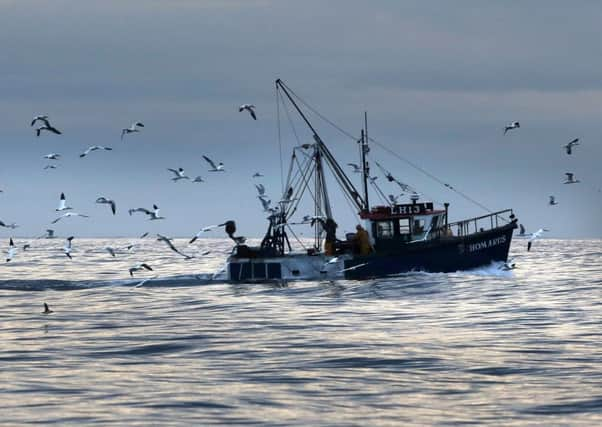Ian Gatt: Sustainable fishing is the keystone of the Scottish industry


At first glance, fishing seems a rather basic and simple activity – put your net in the sea and catch some fish.
If only that were the case! In the real world, fishing is one of the most complex operations around, not least because of the challenging environment our fishermen work in.
Advertisement
Hide AdAdvertisement
Hide AdThere are huge rafts of regulations, both domestic and international, to ensure our fisheries are well-managed. But perhaps the biggest challenge of them all, is that we are dealing with a wild and natural resource whose populations can fluctuate due to all kinds of environmental factors, many of which are outwith our control. Indeed, fish populations are subject to a whole range of natural influences that can affect spawning success and survival.
It is for all those reasons that fishermen are taking an active role in the stewardship of our seas – and no more so than our mackerel and herring fishermen. Our pelagic stocks of mackerel and herring are among Scotland’s most precious natural resources, comprising of huge shoals of fish that abound in our rich coastal waters.
The challenge is to harvest the fish sustainably and we are proud that this is something we have been able to achieve in recent times. Much of this has been down to the work of our pelagic fishermen and the reason why a decade ago the sector, along with processors and other stakeholders, created the Scottish Pelagic Sustainability Group (SPSG).
The founding principle was to ensure the Scottish pelagic sector was at the forefront of environmental responsibility and sustainable harvesting.
In short, we were determined to be leaders in the field and show the world that Scottish caught and processed pelagic fish follows best practice procedures at all stages of the supply chain. A key element of this was to participate in the Marine Stewardship Council (MSC) certification programme to ensure our fisheries are recognised for their sustainability and the responsible fishing practices used.
To achieve this, we have been driving forward joint certification with the other like-minded nations that share these international pelagic fisheries with Scotland.
Furthermore, SPSG is one of the lead founders of the Association of Sustainable Fisheries (ASF) – a global organisation whose members are all MSC certified. ASF was set up to help advise the MSC in the development of its work and ensure informed debate on fisheries.
Scientific research and improving our knowledge of our fisheries and marine ecosystems is also incredibly important.
Advertisement
Hide AdAdvertisement
Hide AdFishermen have a vital role to play here too, and our pelagic fishermen have recently been at the forefront of an ongoing research programme to assess the status of our West coast herring populations, which included the appointment of our own chief scientific officer.
Once this research programme has been completed, the industry will spearhead other exciting new science projects that will enhance our knowledge of pelagic stocks and improve their management.
As is the case with agriculture in our countryside, fishing is an incredibly important provider of food. In a world with a rapidly expanding population, we need sustainable and nutritious food resources more than ever.
We also need healthy seas. Fishermen recognise more than anyone else that it is vital that our seas are looked after – the future of mankind depends upon it – but so too does it depend upon the sustainable harvesting of seafood.
Ian Gatt, chairman of the Scottish Pelagic Sustainability Group.